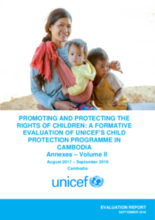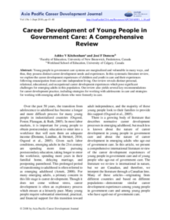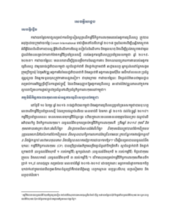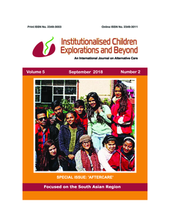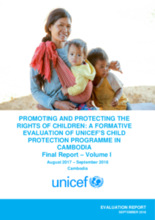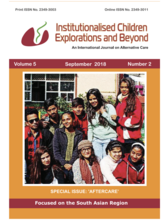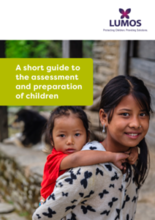Displaying 591 - 600 of 991
This second volume of Promoting and Protecting the Rights of Children: A Formative Evaluation of UNICEF’s Child Protection Programme in Cambodia includes the annexes referred to in the first volume.
In this systematic literature review, the authors explore the career development experiences of children and youth in care and their experiences following emancipation from care into independent living.
The objective of this evaluation was to provide evidence that can help strengthen performance and accountability with UNICEF’s work with the Royal Government of Cambodia and the myriad other authorities and organizations involved in child protection.
This 10th issue of the Institutionalised Children Explorations and Beyond (ICEB) journal, released in September 2018, is a Special Focus issue on ‘Aftercare.’
The objective of this evaluation was to provide evidence that can help strengthen performance and accountability with UNICEF’s work with the Royal Government of Cambodia and the myriad other authorities and organizations involved in child protection.
El objetivo del libro es posicionar regionalmente la situación de los egresados del sistema de protección, demostrando que en los países de latinoamérica hay miles de adolescentes y jóvenes que viven en dispositivos alternativos de cuidado y deben enfrentarse a un egreso de forma abrupta y muchas veces, no planificada.
This issue of the ICEB journal is a special edition on the aftercare concerns of young adults who leave the care of agencies and embark on a journey of their own.
This handout includes information for preparing children to return home or to move to alternative family-based care services.
Using a bevy of administrative data, this article investigates potential risk and protective factors of youth (n = 1420) who aged out of foster care without legal permanency in a southwestern state.
This study aimed to review and analyze the pathways from care to education and employment, using meta-analysis.

